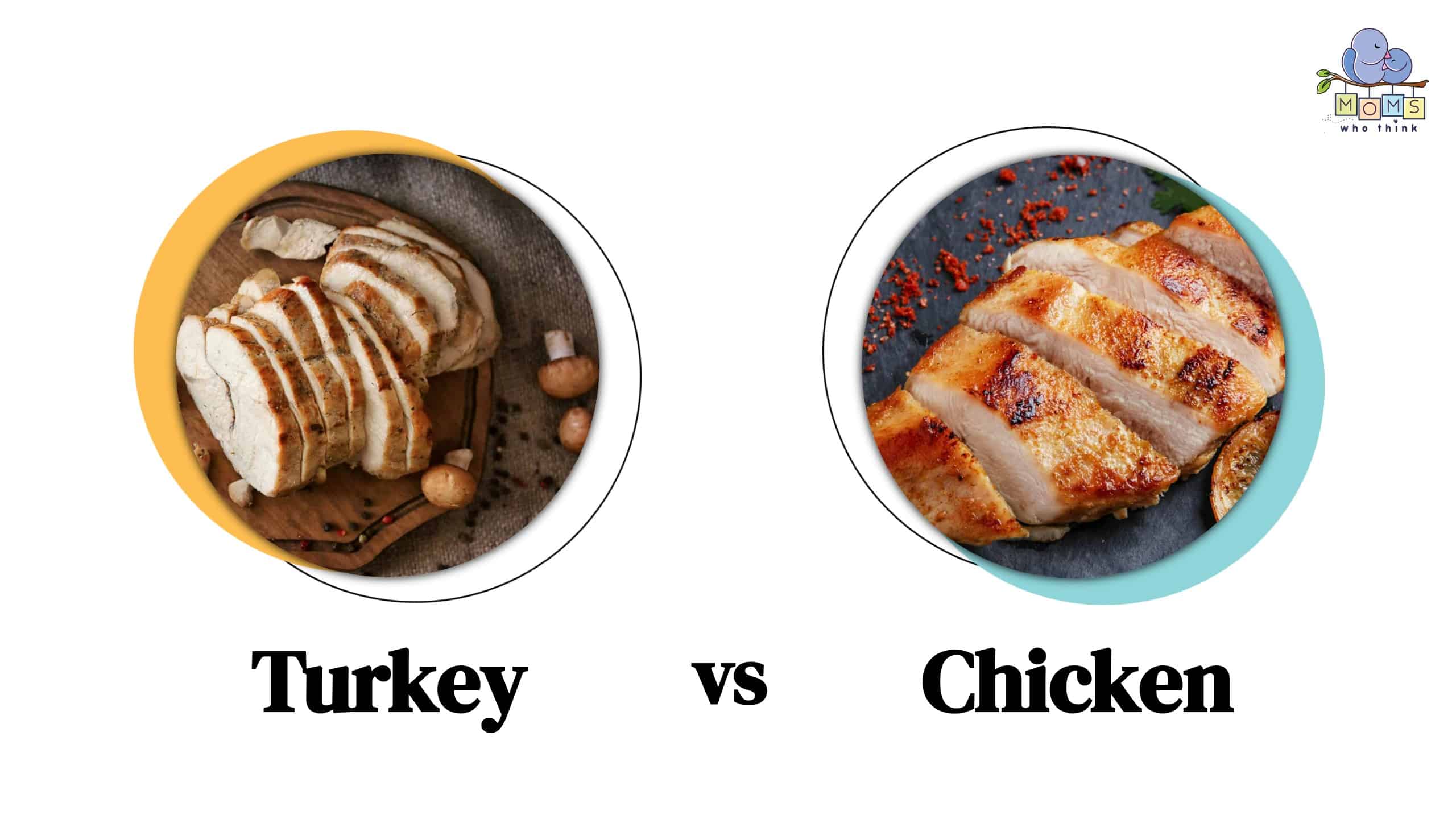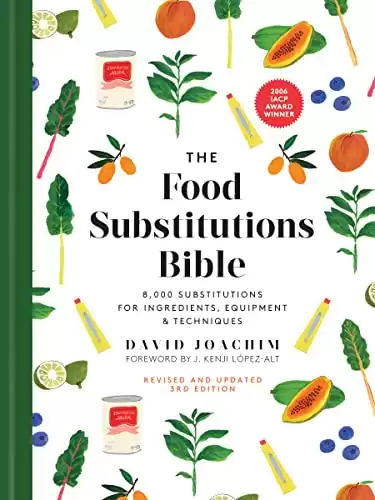When looking for healthy protein options for your family, turkey and chicken are both great choices, but they do differ. Let’s take a deeper look into turkey vs. chicken and find out how to best utilize what both of these options offer.
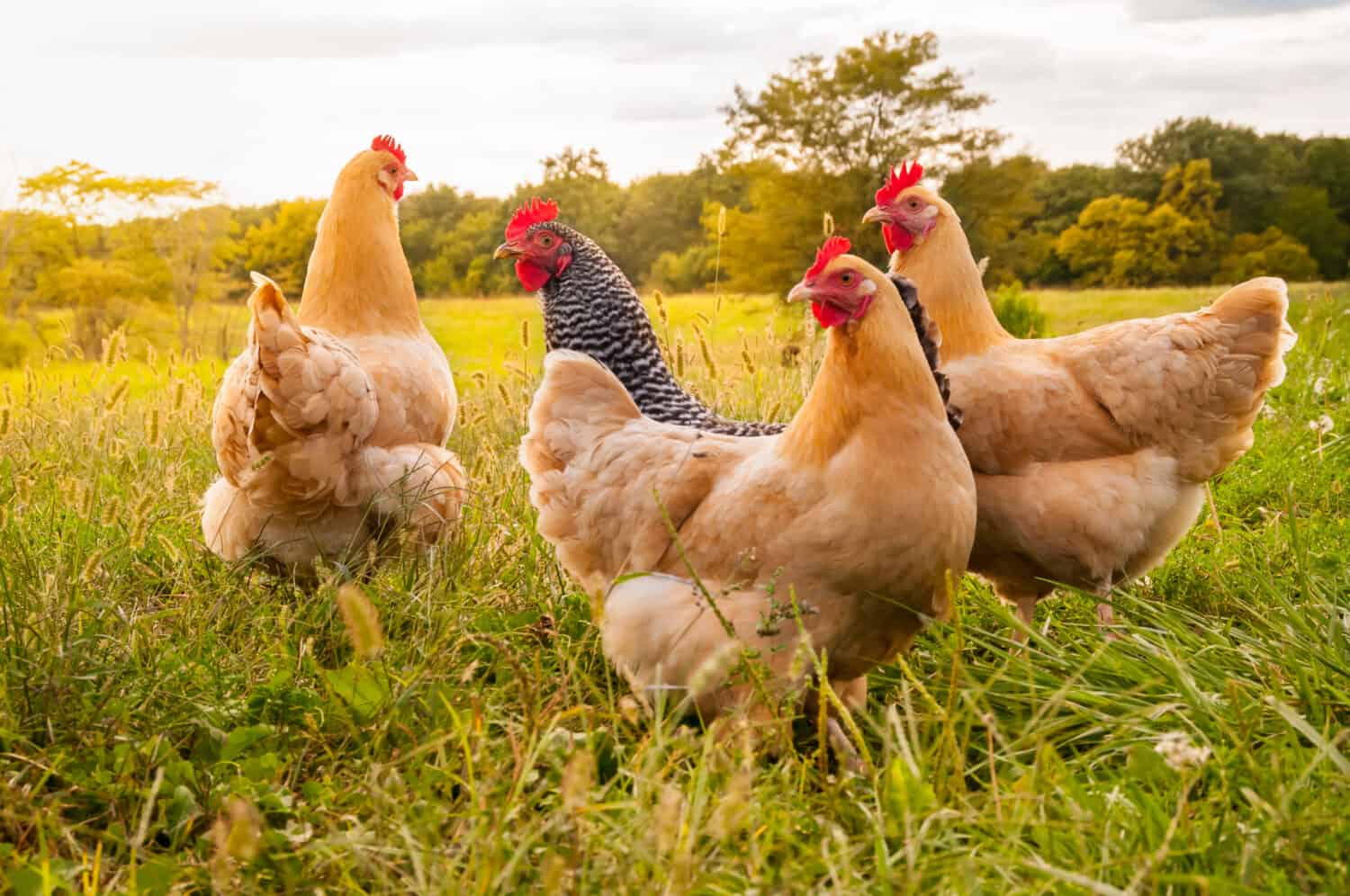
©Moonborne/Shutterstock.com
Turkey vs. Chicken: What is the Difference?
The primary difference between turkey and chicken is their taste, texture, and nutrition. Chicken has a mild flavor and can be tender while turkey has a stronger, more gamey flavor and a denser texture. From a nutrition standpoint, turkey is generally higher in protein while chicken has slightly more calories. Each food has nutrients it's higher in like turkey having more iron whereas chicken is higher in vitamin B6.
In terms of availability, chicken is easier to find and is a staple on most menus while turkey is more specialized. Chicken is used as a protein across international cuisines (Chinese, Mexican, Indian, etc.) whereas turkey is more associated with the holidays and is more popular in deli meats.
- The must-have convenient reference guide for every home cook!
- Includes more than 8,000 substitutions for ingredients, cookware, and techniques.
- Save time and money on by avoiding trips to grab that "missing" ingredient you don't really need.
Turkey is larger and heavier but it is a leaner meat. Roasted turkey is especially popular during Thanksgiving and Christmas, whereas chicken is used frequently throughout the year.
Let's explore some of these differences in more detail.
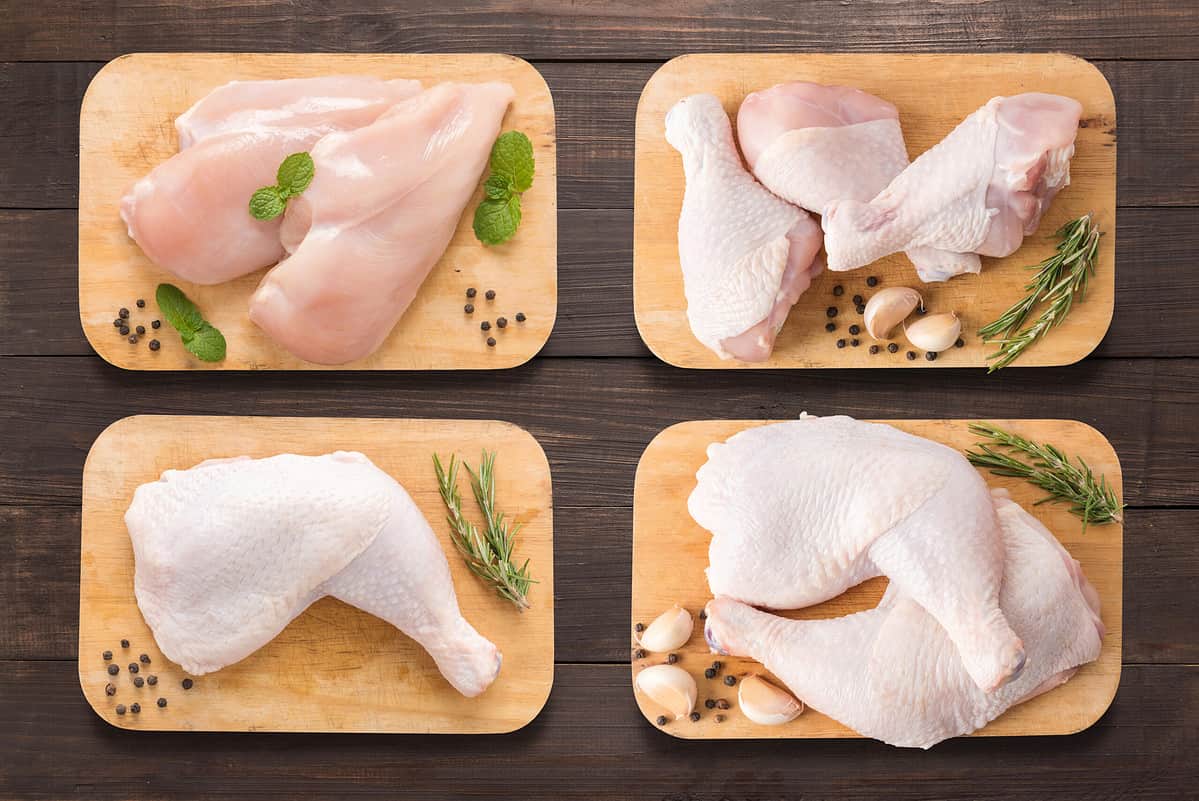
©Bon Appetit/Shutterstock.com
Turkey vs. Chicken: Which is Healthier (Calories, Fat, Vitamins in Each)
Turkey is a leaner meat and is often used as a healthier substitute for chicken for anyone who is really keeping an eye on calories, fat, and cholesterol. Here is a turkey vs. chicken nutritional comparison chart to learn more:
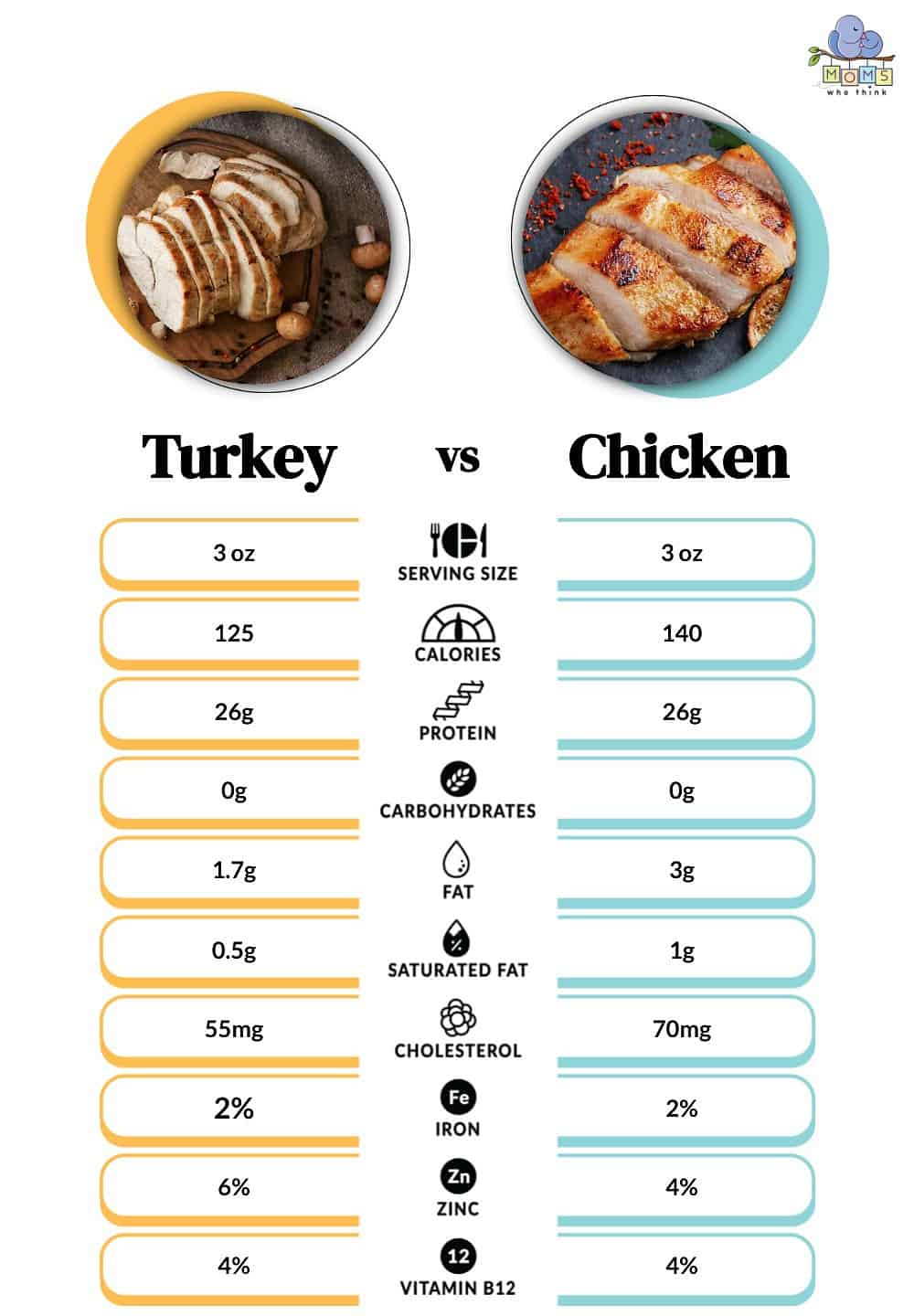
©
Here are a few of the main nutritional differences between the two foods.
- Protein: While turkey and chicken both contain about 26 grams of protein per 3 ounces, turkey has a higher density of protein calories.
- Overall Calories: Turkey has slightly less calories than chicken at 125 per 3 ounces vs. chicken's 140 calories per 3 ounces. It's worth noting that the location of meat will affect calories in both birds. For example, dark chicken meat has about 20% higher calories than white chicken meat. There's a similar relationship in turkey where its dark meat contains about 20 to 30 additional calories for every three ounces. Most of these calories come from added fat.
- Sodium: Turkey is often brined for products like deli meats, which can lead to high levels of sodium you may want to watch for. If turkey and chicken are unprocessed, their sodium levels are similar.
- Vitamins and Minerals: Turkey and chicken both have vitamins and minerals they're higher in. Chicken is abundant in niacin whereas turkey is rich in magnesium. Overall, while chicken or turkey may have slightly more of certain minerals, there is a heavy overlap in the healthy vitamins and minerals each contains.
Turkey vs. Chicken: Taste
Turkey and chicken are two different birds so although they are similar they do taste different. Turkey has a richer and darker taste than chicken and it is also usually juicier which many people love. Turkey can also sometimes be described as gamier than chicken. If looking for a protein that is neutral to go with anything, many opt for chicken.
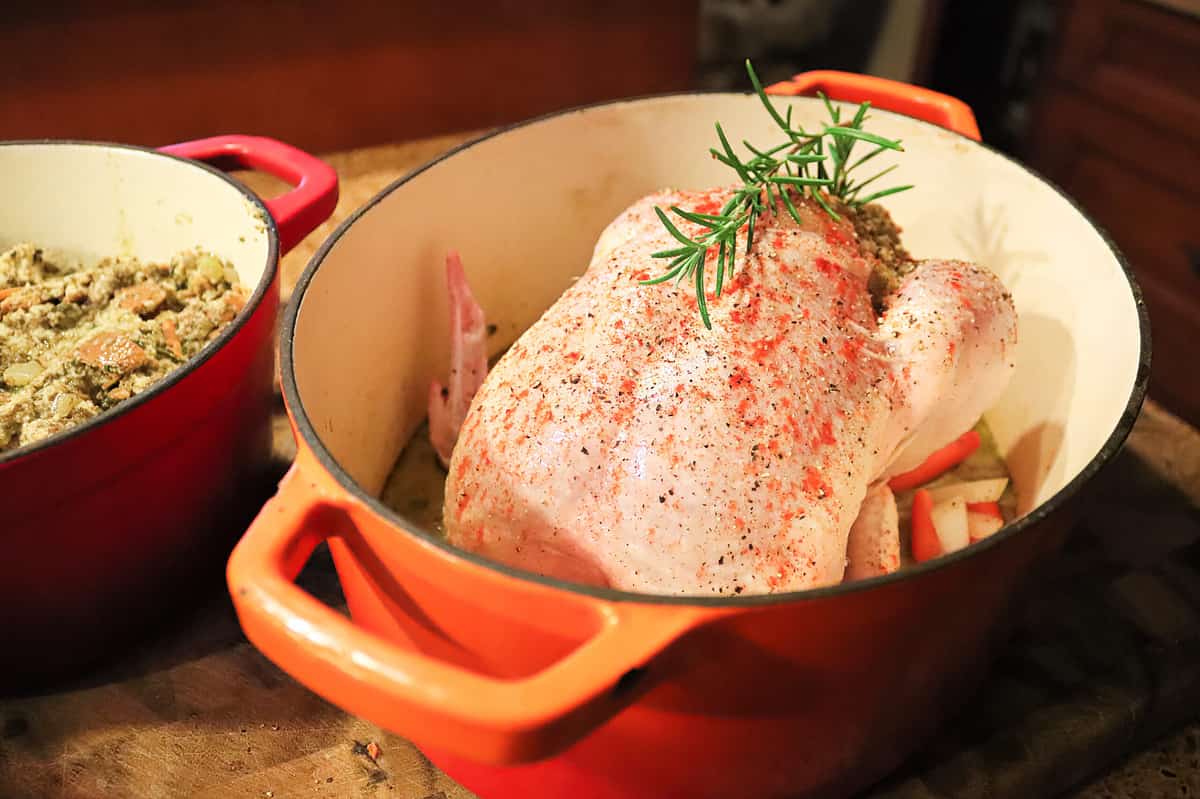
©iStock.com/Akchamczuk
Turkey vs. Chicken: Preparation
Because turkey and chicken are a similar bird they can be prepared very similarly. Turkeys are usually significantly larger than chickens so you would use a bigger pan, more seasonings, brine it for a longer period of time, and roast it longer than you would a chicken.
- The must-have convenient reference guide for every home cook!
- Includes more than 8,000 substitutions for ingredients, cookware, and techniques.
- Save time and money on by avoiding trips to grab that "missing" ingredient you don't really need.
For both birds, after preparing it you can easily throw it in the oven and keep an eye as it starts to become golden. The safe cooking temperature for all poultry is 165 ºF. After roasting your bird, it is important to allow it rest time. This allows the turkey or chicken time to remain at the temperature or continue to rise for a few minutes to destroy any harmful bacteria.
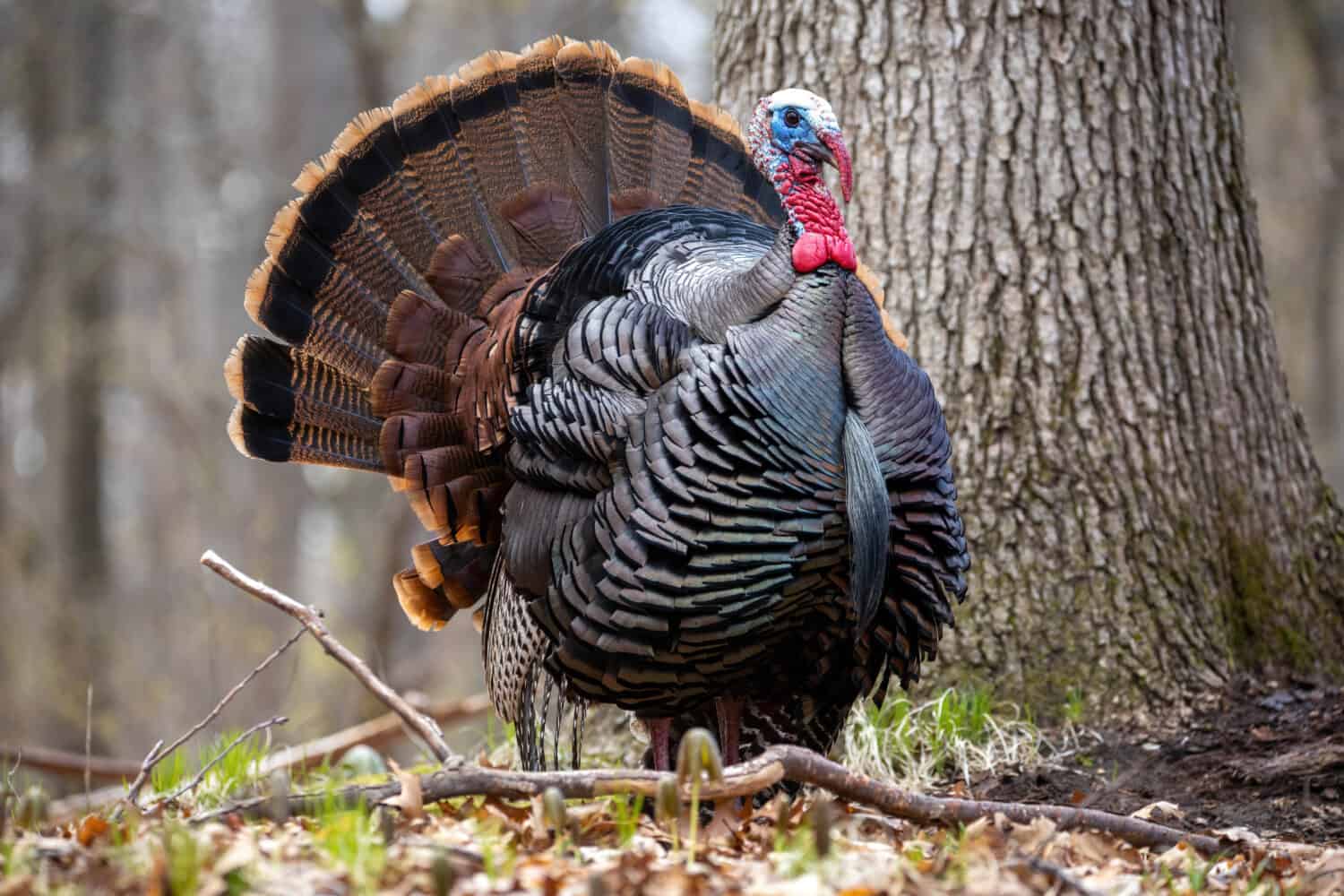
©thangs1/Shutterstock.com
Turkey vs. Chicken: Origin
Turkeys were domesticated around 2,000 years ago in Southern Mexico. The primary ancestor of the turkey is the wild turkey and it’s believed the Mayans were the first to domesticate this animal. The domesticated birds were taken to Europe by Spanish explorers and before long they were in farm yards all over the world.
Chickens were domesticated around 7,000-10,000 in Southeast Asia. The primary ancestor of the chicken is the Southeast Asian Red Junglefowl. The distribution of chickens happened very quickly as they not only provided meat but also produces eggs. It is also believed that they had a quick widespread because of the Cockfighting sport.
A Quick Comparison of Turkey vs. Chicken
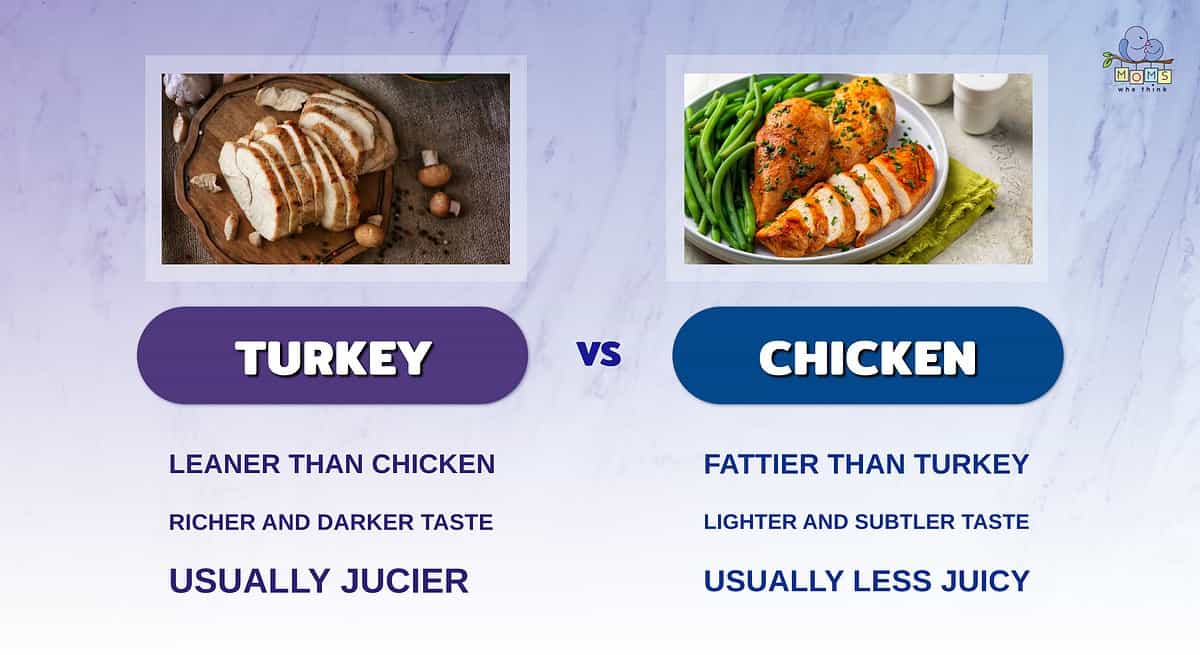
Turkey and chicken are both excellent options, especially if you're looking for a meat that's low in saturated fat but high in protein. Turkey is the healthier option between the two, but both are generally quite healthy. The richer and darker taste of turkey may be preferred by some, while others will like the ability to use chicken's subtler flavor in a variety of dishes. Turkey is more than just a Thanksgiving meal; it has a lot of value in a healthy diet. Give these turkey and chicken recipes a try, and you'll be in love with both of these birds in no time.
Our Favorite Turkey Recipes
Print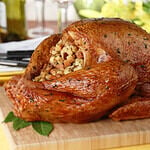
Leftover Turkey Casserole
- Yield: 4 servings 1x
Ingredients
1½ cups finely chopped onion
½ cup finely chopped celery
1 can (14½ ounces) reduced sodium chicken broth, divided
2 eggs, lightly beaten
2 teaspoons poultry seasoning
½ teaspoon salt
¼ teaspoon pepper
3 cups cubed whole grain bread
3 cups cubed white bread
2 cups cubed cooked turkey breast
½ cup chopped fresh or frozen cranberries
Instructions
1. In a large saucepan, bring the onion, celery, and ½ cup broth to a boil. Reduce heat; simmer, uncovered, for 5 to 8 minutes or until vegetables are tender. Remove from the heat.
2. Stir in the eggs, poultry seasoning, salt, pepper, and remaining broth until blended.
3. Add the bread cubes, turkey and cranberries; mix well.
4. Spoon into a 2 qt. baking dish coated with cooking spray. Cover and bake at 350° for 15 minutes. Uncover; bake 20 to 25 minutes longer or until a thermometer reaches 160°.
Nutrition
- Serving Size: 1 serving
- Calories: 290
- Sodium: 916mg
- Fat: 5g
- Saturated Fat: 1g
- Carbohydrates: 34g
- Fiber: 4g
- Protein: 27g
- Cholesterol: 154mg
- Roasted Turkey with Bourbon-Butter Glaze
- Old Fashioned Turkey and Stuffing with Pan Gravy
- Creamed Turkey Over Mashed Potatoes Recipe
